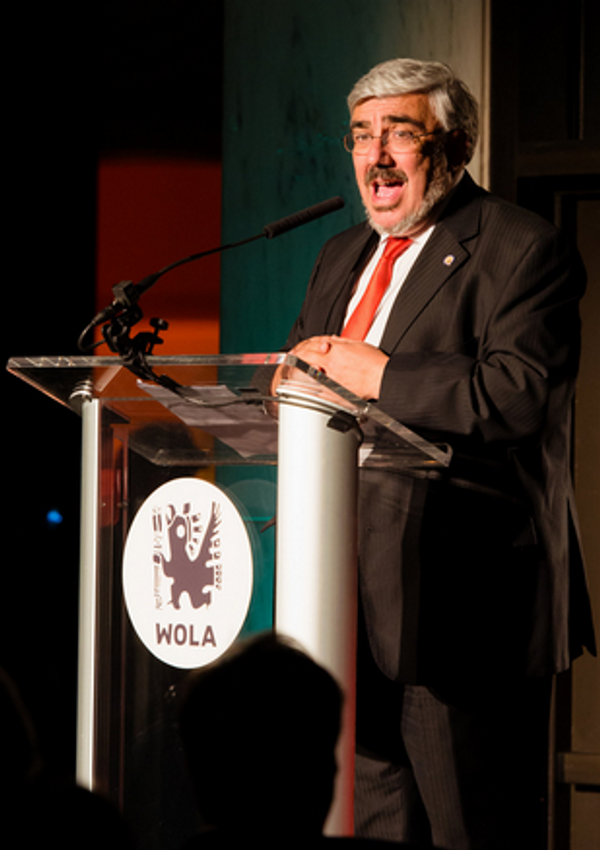What does it mean to have a human rights-oriented drug policy?
By WOLA Senior Fellow Coletta A. Youngers
Each year, the Washington Office on Latin America gives human rights awards to individuals who promote human rights and justice as the foundation of public policies in Latin America. One of this year’s recipients was Ambassador Milton Romani Gerner, Uruguay’s Permanent Representative to the Organization of American States (OAS). A union leader and human rights activist under Uruguay’s military dictatorship, he has been a pioneer in promoting a human rights-oriented drug policy.
The U.S. “war on drugs” has had a devastating impact on those in the region on the front-lines, including poor farmers pushed deeper into poverty when their coca plants are eradicated, Colombians forced to join the ranks of the country’s internally displaced when their crops are sprayed, and non-violent drug offenders who, as a result of disproportionate sentencing policies put forth by Washington, spend years and years in jail. U.S.-backed drug policies have led to social unrest, violence and human rights violations.
Click here to read the full article.
Keep up-to-date with drug policy developments by subscribing to the IDPC Monthly Alert.
Regions
Related Profiles
- Washington Office on Latin America (WOLA)
- Coletta Youngers
